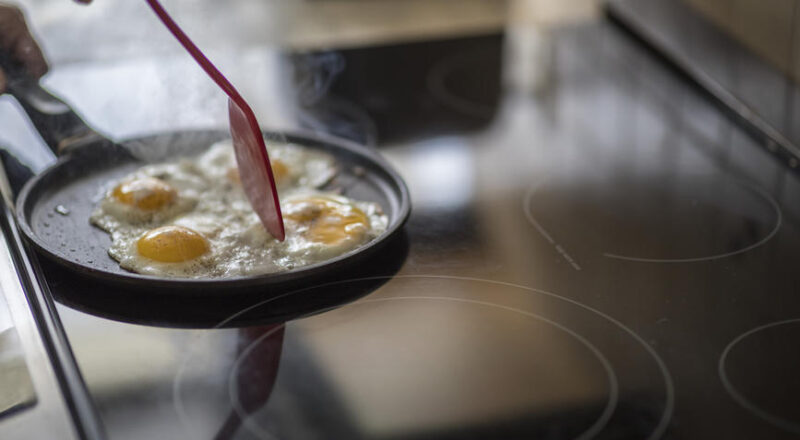When it comes to cooking, few materials are as revered and yet as misunderstood as cast iron. With its rustic charm and unparalleled heat retention, cast iron has been a kitchen staple for generations. However, with the rise of induction cooking, many myths have emerged, casting doubt on the compatibility of these two culinary powerhouses. In this article, we will explore and debunk the various myths about cast iron and induction, providing clarity and confidence for your cooking adventures.

Understanding Cast Iron Cookware
Before diving into the myths, it’s essential to understand what makes cast iron so unique. Known for its durability and excellent heat retention, cast iron cookware is a favorite among chefs and home cooks alike. Its ability to maintain a consistent temperature makes it ideal for a variety of cooking methods, from frying to baking.
The Basics of Induction Cooking
Induction cooking is a modern marvel that uses electromagnetic fields to directly heat pots and pans. Unlike traditional gas or electric stoves, induction cooktops heat cookware quickly and efficiently, making them an attractive option for busy kitchens. However, not all materials are suitable for induction cooking, leading to some common myths about cast iron and induction.
Myth 1: Cast Iron Doesn’t Work on Induction Cooktops
One of the most pervasive myths is that cast iron cannot be used with induction cooktops. This is simply not true. In fact, cast iron is one of the best materials for induction cooking because it is naturally magnetic. The key is ensuring that the bottom of the pan is flat and smooth to make proper contact with the cooktop. For more information, you can check this article.
Myth 2: Cast Iron Can Damage Induction Cooktops
Another common misconception is that cast iron can scratch or damage induction cooktops. While it is true that cast iron is heavy and can cause scratches if dragged across the surface, using it with care and ensuring the cooktop is clean will prevent damage. Many people successfully use cast iron on induction cooktops without any issues.
Myth 3: Uneven Cooking with Cast Iron on Induction
Some believe that cast iron causes uneven cooking on induction stoves. However, this is more about technique than the material itself. Preheating the pan properly and using a lid can help distribute heat evenly. You can find more tips on managing uneven browning here.
Myth 4: Induction Cooking Requires Special Cast Iron
Many people think they need to buy special cast iron cookware for induction cooking. In reality, most cast iron pans will work just fine on induction cooktops. It’s important to ensure that the pan has a flat base and fits well on the cooktop. If you’re unsure, here’s a helpful guide on how to check compatibility.
Myth 5: Cast Iron Takes Too Long to Heat Up
While it’s true that cast iron takes longer to heat up compared to other materials, this is actually a benefit. Once heated, cast iron maintains a stable temperature, which is perfect for recipes that require consistent heat. Induction cooktops can help speed up this process, making cast iron even more versatile.
Benefits of Using Cast Iron on Induction
Using cast iron on induction cooktops combines the best of both worlds: the efficiency of induction heating and the heat retention of cast iron. This combination offers several benefits, including energy efficiency, precise temperature control, and the ability to cook a wide range of dishes with ease.

Maintaining Your Cast Iron Cookware
Proper maintenance of your cast iron cookware is crucial for its longevity and performance. Regular seasoning and proper cleaning techniques will keep your cast iron in top condition. Learn more about seasoning cast iron for induction cooking here.
FAQs
Q1: Can I use enameled cast iron on induction?
A: Yes, enameled cast iron works well on induction cooktops. The enamel coating does not interfere with the magnetic properties required for induction cooking.
Q2: Does induction cooking affect the seasoning of my cast iron?
A: Induction cooking does not affect the seasoning of your cast iron. It is essential, however, to maintain regular seasoning practices to keep your cookware in excellent condition.
Q3: Are there any alternatives to cast iron for induction cooking?
A: Yes, other materials like stainless steel and certain non-stick cookware are also compatible with induction cooktops. However, they may not offer the same heat retention benefits as cast iron.
In conclusion, understanding the facts about cast iron and induction can help dispel myths and make your cooking experience more enjoyable. By embracing the strengths of both cast iron and induction cooktops, you can elevate your culinary creations to new heights. For more insights, explore this external resource on using cast iron with induction.
This article contains affiliate links. We may earn a commission at no extra cost to you.

